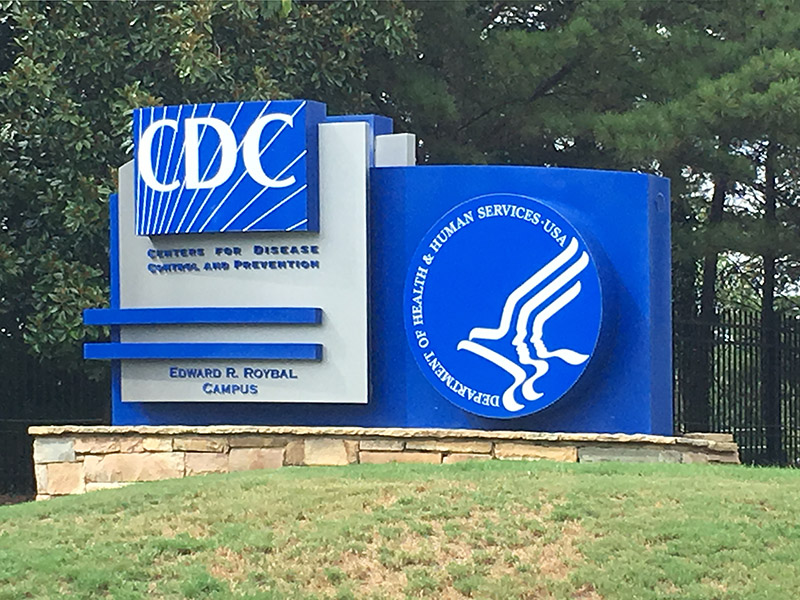West Virginia governor says he’ll sign transgender athlete ban into law
West Virginia is poised to become the fourth state banning trans female athletes from participating in women's sports.

West Virginia Gov. Jim Justice has promised to sign a bill into law that would bar transgender youth from competing in sports based on their gender identity.
Speaking at a briefing on COVID-19 on Wednesday, Justice said he supported the bill, which would apply to interscholastic, intramural, and club athletic teams or sports sponsored by public K-12 schools or colleges and universities, requiring those institutions to designate sports as male, female, or co-ed, with eligibility based on a person’s assigned sex at birth.
“Personally I feel that absolutely, I just can’t get through my head that it is the right thing for us at a middle school level or a high school level in our state for me not to support the bill,” Justice said, according to Wheeling-based CBS affiliate WTRF. “Even at our college-level, I support the bill there as well. The only problem is the NCAA could penalize us in West Virginia.”
The NCAA recently — albeit timidly — reiterated their longstanding policy that states wishing to host NCAA tournaments or sporting events must be able to provide opportunities for all athletes, regardless of sexual orientation or gender identity, to compete in a safe environment.
The collegiate sports association noted that the presence of anti-LGBTQ laws will be taken into account when deciding which states or cities are given hosting opportunities.
Current NCAA rules allow transgender athletes to compete in sports based on the gender by which they identify, so long as they are stable in their gender identity and have undergone hormone therapy for a full year before competing.
Under West Virginia’s bill, transgender female athletes would be barred from competing in sports designated for women, but people whose assigned sex at birth is female — regardless of whether they are cisgender women or trans males — would be allowed to compete in men’s sports.
The bill also allows any student who believes they’ve missed out on an athletic opportunity because of the participation of a transgender athlete to sue for damages.
It also classifies a student’s gender based on their assigned sex at birth, and requires all students to provide school administrators with a copy of an original birth certificate upon their admission to school.
Once he signs the bill into law, Justice would become the fourth governor in America to push through such restrictions on transgender athletes, following Tennessee Gov. Bill Lee, Arkansas Gov. Asa Hutchinson, and Mississippi Gov. Tate Reeves.
See also: Athletes, coaches call on NCAA to remove championships from state with anti-trans laws
Just as in many other states, Republican legislators in West Virginia have seized upon transgender inclusion in schools — not only in sports, but their acknowledging their mere existence — as a wedge issue that they believe will reap electoral rewards.
As a result, nearly-identical legislation — ranging from trans athlete bans to penalizing doctors providing gender-affirming care to bans on LGBTQ content in schools — has been introduced in nearly 30 states.
These bills are often backed by conservative interest groups that previously opposed legalizing same-sex marriage or have sought to pass laws allowing individuals and businesses to refuse service to same-sex couples or LGBTQ individuals.
Last year, Idaho lawmakers passed a ban on transgender athletes, which was subsequently challenged in court and blocked from taking effect by a federal judge. That legal fight remains ongoing.
LGBTQ advocates blasted the West Virginia bill and accused lawmakers of “stoking fear and division” in pushing the bill.
“There is no evidence that supports the need for this legislation, and it will jeopardize the wellbeing of transgender kids across the state — who are just kids who want to play,” Alphonso David, the president of the Human Rights Campaign, said in a statement. “The health and safety of children should never be reduced to a political talking point. West Virginians need state legislators to prioritize the COVID-19 pandemic and economic relief, not manufactured issues that discriminate against transgender youth.”
Andrew Schneider, the executive director of Fairness West Virginia, said the bill, which initially only banned athletes in K-12 schools from competing based on their gender identity, has progressively gotten worse as it’s moved through the legislature.
He warned that any legislation that is seen as attacking the LGBTQ community could prompt some in the business community to boycott the state or refuse to expand operations in West Virginia, as occurred in North Carolina in 2016 and 2017 following that state’s passage of a bill seeking to restrict which restroom facilities transgender individuals are allowed to use.
“This bill now essentially allows any member of the public to challenge an athlete’s gender in the courts, and it was expanded to ban transgender athletes from participating at the collegiate level,” he said in a statement. “If this bill becomes law, it will be a legal and financial disaster for our state.”
Read more:
North Carolina Republicans want to force teachers to “out” transgender students to their parents
Arkansas lawmakers send “sham” bill offering vague hate crime protections to governor’s desk
Support Metro Weekly’s Journalism
These are challenging times for news organizations. And yet it’s crucial we stay active and provide vital resources and information to both our local readers and the world. So won’t you please take a moment and consider supporting Metro Weekly with a membership? For as little as $5 a month, you can help ensure Metro Weekly magazine and MetroWeekly.com remain free, viable resources as we provide the best, most diverse, culturally-resonant LGBTQ coverage in both the D.C. region and around the world. Memberships come with exclusive perks and discounts, your own personal digital delivery of each week’s magazine (and an archive), access to our Member's Lounge when it launches this fall, and exclusive members-only items like Metro Weekly Membership Mugs and Tote Bags! Check out all our membership levels here and please join us today!
























You must be logged in to post a comment.